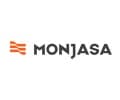Monjasa enables Latin America’s largest ISCC-certified marine biofuels option

By enabling a sustainable and scalable biofuel option for the maritime industry in Latin America, global top 10 marine fuels supplier, Monjasa, prepares for the changing fuel mix of the future. However, Monjasa still awaits the shift away from biofuel trial voyages to a broader pick-up in demand.
Drop-in fuels are considered a viable option in the short and medium-term towards reaching IMO’s target of full decarbonisation of the shipping industry by 2050.
“The recent revised IMO 2050 climate strategy is a noticeable boost to the green fuels industry, however, more concrete and binding requirements are needed to ensure a broad fuel transition away from fossil fuels for the global merchant fleet.
Monjasa holds a unique position in the value chain between upstream fuel producers and downstream customers. Therefore, although our data indicates that the demand for biofuel blends is only emerging slowly, we keep preparing our global supply chains, fleet logistics and organisation for the fuel mix of tomorrow,” says Jesper Nielsen, Group Responsibility Director at Monjasa.
Scalable biofuels capacity of 5,000-7,000 tonnes monthly
Most recently, Monjasa’s efforts have been focused on Latin America and the Colombian port of Cartagena. Monjasa already supplies traditional marine fuels in Colombia and the company now extends its local maritime logistics to include a monthly capacity of 5,000-7,000 metric tonnes of 2nd generation biofuel blends, primarily B20 and B30.
“Together with our partners, we have enabled biofuels supply not only for the Colombian market, but potentially also for the main ports across Latin America, including the Panama Canal. Looking at the current demand, it is the large container lines who are showing concrete interest and driving demand for biofuels in this market. Looking towards 2025, we expect that biofuels will become a broadly accepted option to comply with IMO’s strategy on reducing CO2-emissions from maritime shipping,“ says Camilo Angulo Ferrand, Trading Manager at Monjasa Americas. A B20 biofuel blend consists of 20% Fatty Acid Methyl Ester (FAME) and 80% Very Low Sulphur Fuel Oil (VLSFO).
Broadening ISCC-certified biofuels worldwide
Dealing in emerging fuel types entails an extended level of trust across the supply chain and by July 2023, Monjasa achieved the globally applicable sustainability certification system, ISCC, across offices and operations in Panama, USA, Denmark, Dubai and Singapore.
In this way, all involved parties are able to trace feedstock used for the production of biofuels from the point of origin to the end consumer. In addition, ISCC allows Monjasa to measure the greenhouse gas emissions from each phase of the supply chain and make this data available to shipowners as well. First VLCC biofuels supply in the Middle East
Monjasa also provides biofuel options in other parts of the world, including this summer’s first B24 biodiesel supply for a Very Large Gas Carrier (VLGC) off Dubai. This successful operation was the result of new collaboration across the supply chain involving Astomos Energy, Inpex Corporation and Monjasa, with the product being blended and supplied by Monjasa’s locally deployed tanker, Monjasa Shaker (9,600-dwt).
In Asia, Monjasa recently revealed new maritime logistics adaptable to biofuels supply in the Port of Singapore. This new operation will consist of a total of three vessels by the end of 2023. Overall, Monjasa supplied a total of 6.4 million tonnes of marine fuels in 2022 and is determined to become an enabler of tomorrow’s low-emission fuel mix for the shipping industry.
Source: Monjasa
